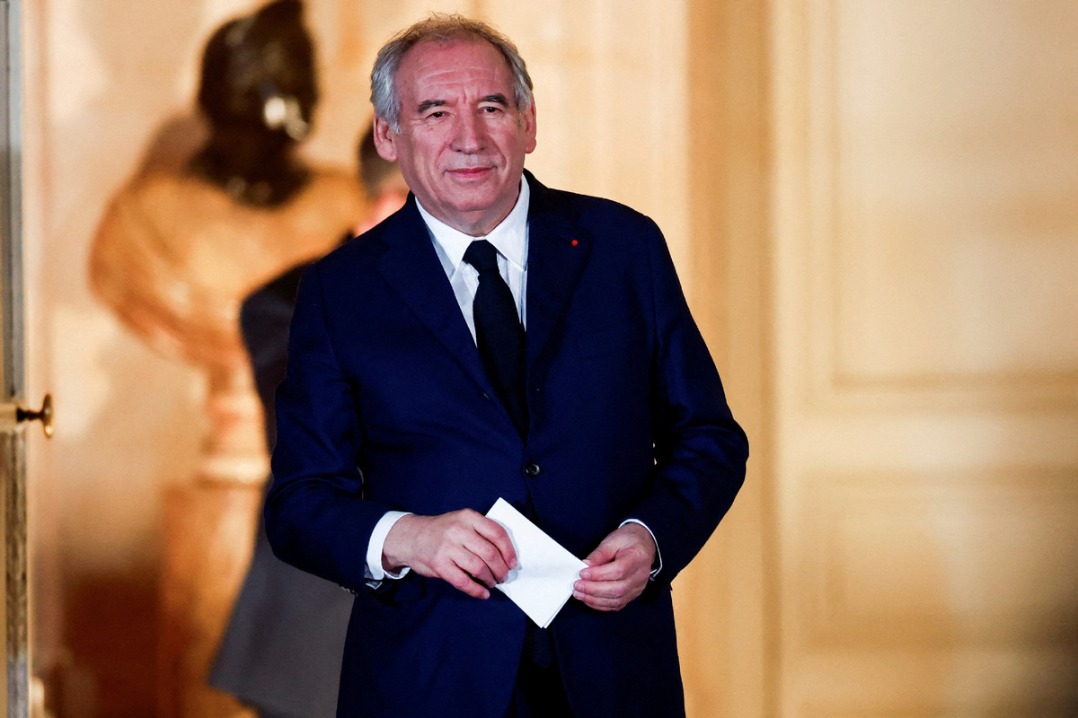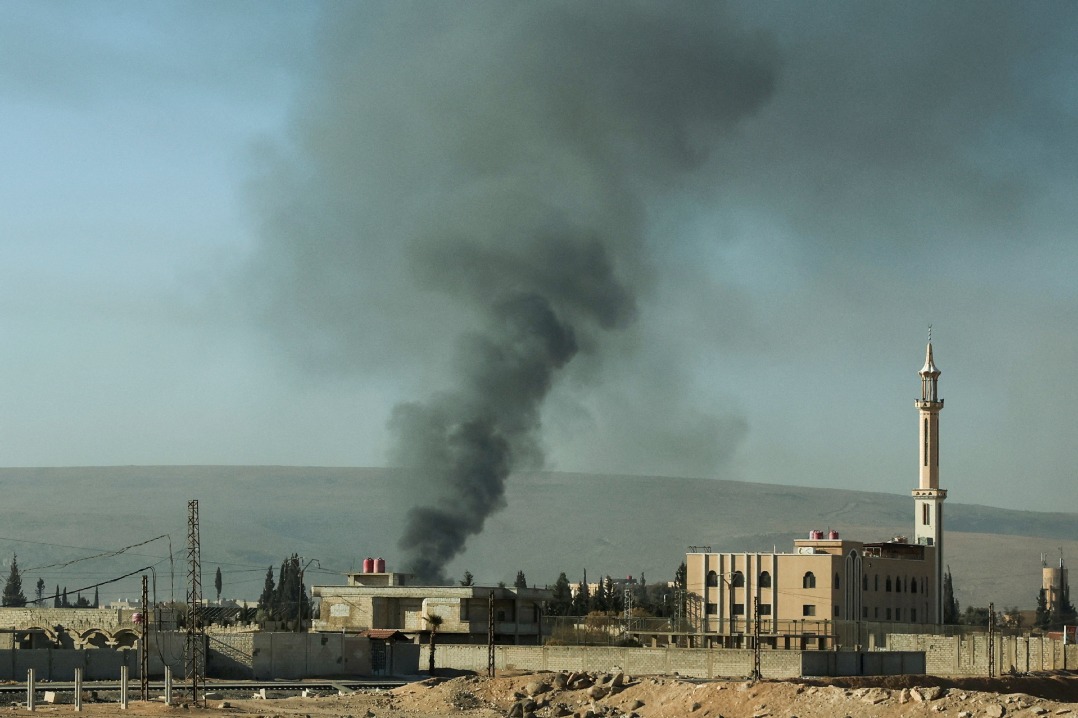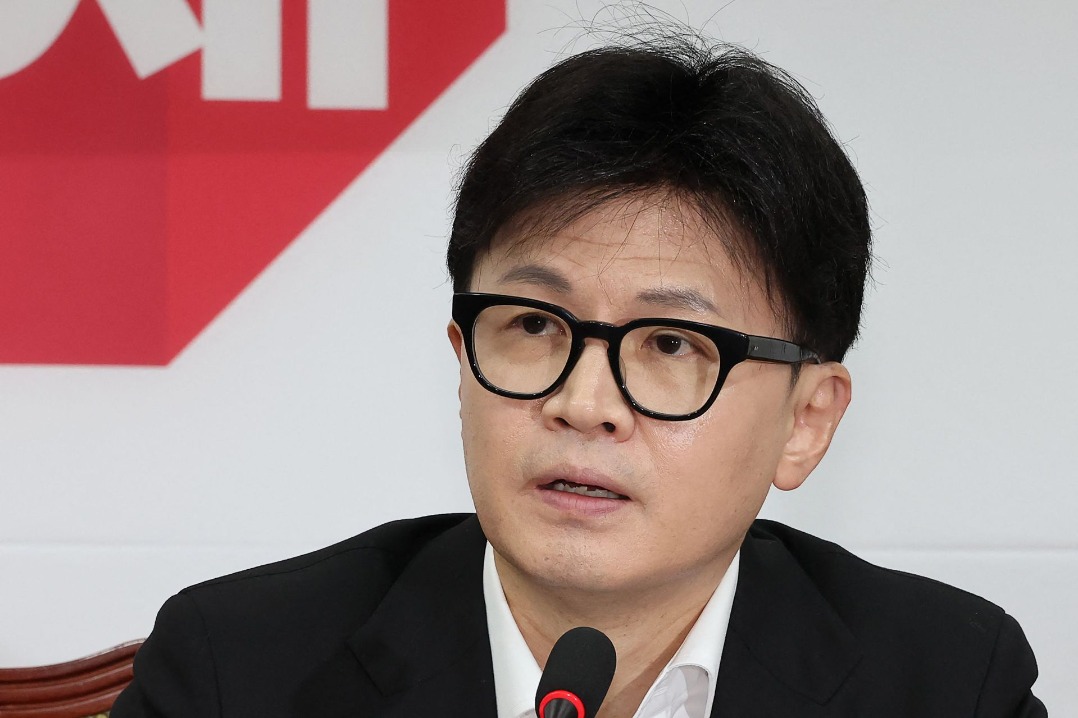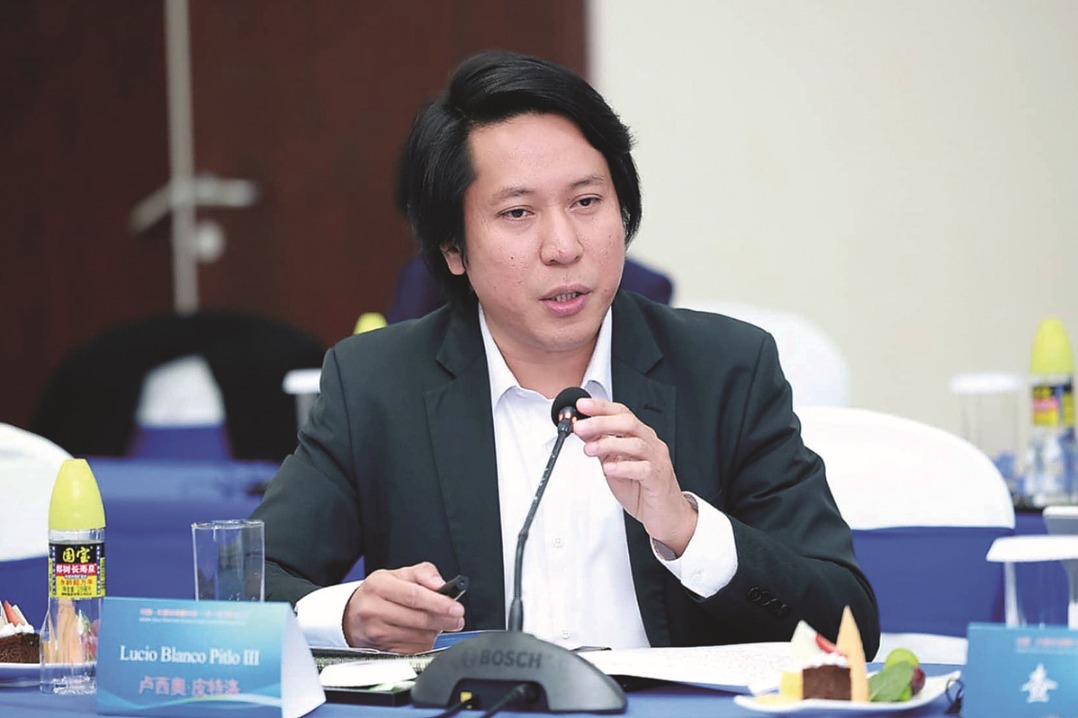China's modernization expected to bring wide-ranging global benefits

Wide-ranging benefits are awaiting both China and the world as the country is marching on the Chinese path to modernization — a holistic vision set out at the 20th National Congress of the Communist Party of China, officials and experts said.
They made the observation on Wednesday during the latest session of Vision China, which discussed how the Chinese path to modernization will advance prosperity domestically and globally in economic, social and cultural contexts.
At the congress last month, Xi Jinping, general secretary of the CPC Central Committee, delivered a report outlining the key features of the Chinese path to modernization.
Such a modernization is intended for a huge population, for common prosperity for all, for material and cultural-ethical advancement, for harmony between humanity and nature, and for peaceful development, said Xi.
To make the target, approach and implications of this vision better understood at home and abroad, China Daily hosted the online event, themed "Path to Progress: Chinese Modernization", which gathered leading officials and scholars from around the world.
The Chinese path to modernization includes Beijing's clear commitment to realizing all-around progress of the largest population on the planet in a fair and sustainable way, benefiting both the people and the environment, they said.
It is also good news for other nations clouded by the COVID-19 pandemic and the global economic downturn, as China will ensure its path to prosperity is accompanied by win-win collaboration with the world, and the existing cooperative blueprints such as the Belt and Road Initiative will further prosper, they added.
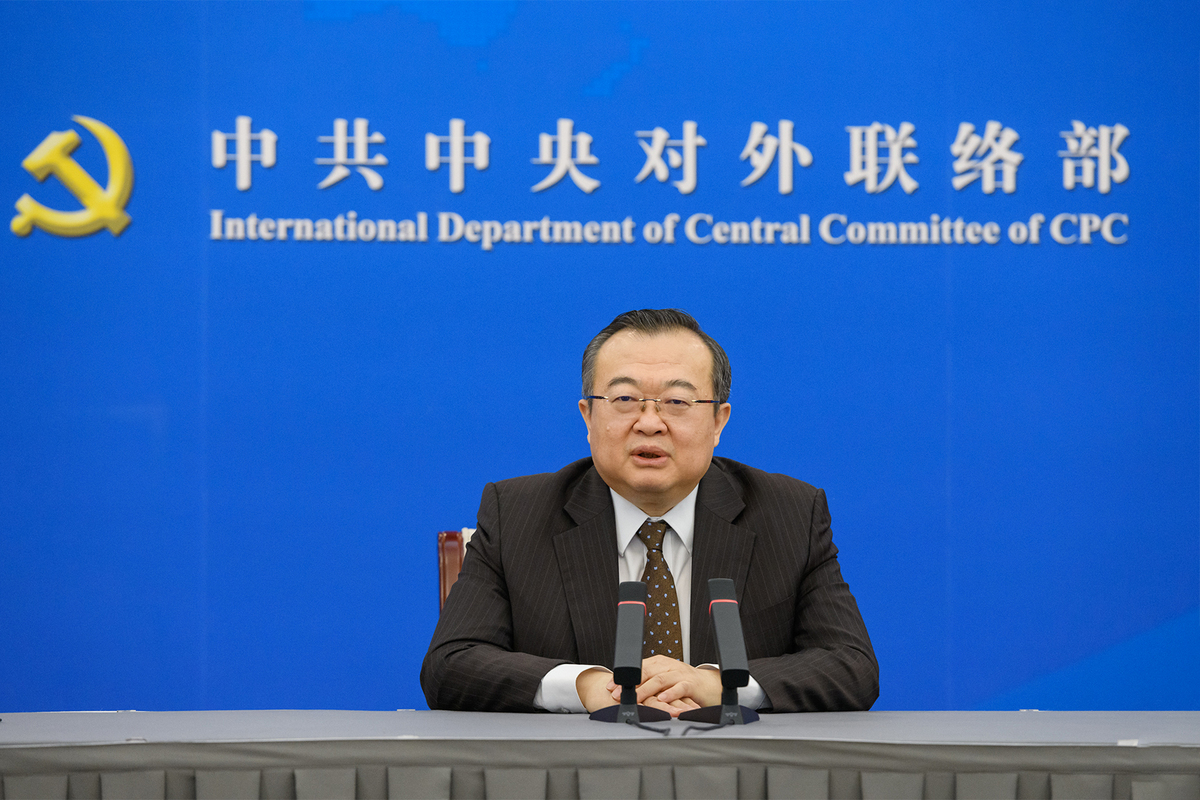
Liu Jianchao, minister of the International Department of the CPC Central Committee, said that China's modernization goes beyond the notion of putting one's own country first as it is a path to development that pursues common prosperity for all.
China's modernization "does not seek outward expansion, nor attempt to confine other countries to the lower end of industrial chains", he said.
"Instead, our modernization is underpinned by openness, inclusiveness and win-win cooperation geared toward creating more opportunities with our own development for the whole world," he said.

Qu Yingpu, publisher and editor-in-chief of China Daily, said, "The Chinese path to modernization is essentially the modernization of the people, and its goal is to benefit the people."
Qu noted that when meeting the press last month, General Secretary Xi underscored that, "We shall always act for the people and rely on them in everything we do."
China will dedicate itself to peace, development, cooperation and mutual benefit, and with an open mind, "China will draw inspiration from all of human civilization's outstanding achievements and work to build an even better world", he said.

Ella Rule, chair of the Communist Party of Great Britain (Marxist-Leninist), stated her admiration for the CPC's lifting of 100 million poor rural residents out of poverty, and China's success in combating the COVID-19 pandemic and in unprecedented infrastructure projects such as railways, roads and water conservancy.
She hailed the role of the CPC in balancing economic growth, public welfare and ecological sustainability.
"China is able to moderate the lust for profit of entrepreneurs to ensure that the interests of the masses are not neglected, or those of future generations of people who are threatened by global warming brought about by the blind pursuit of profit", she said.
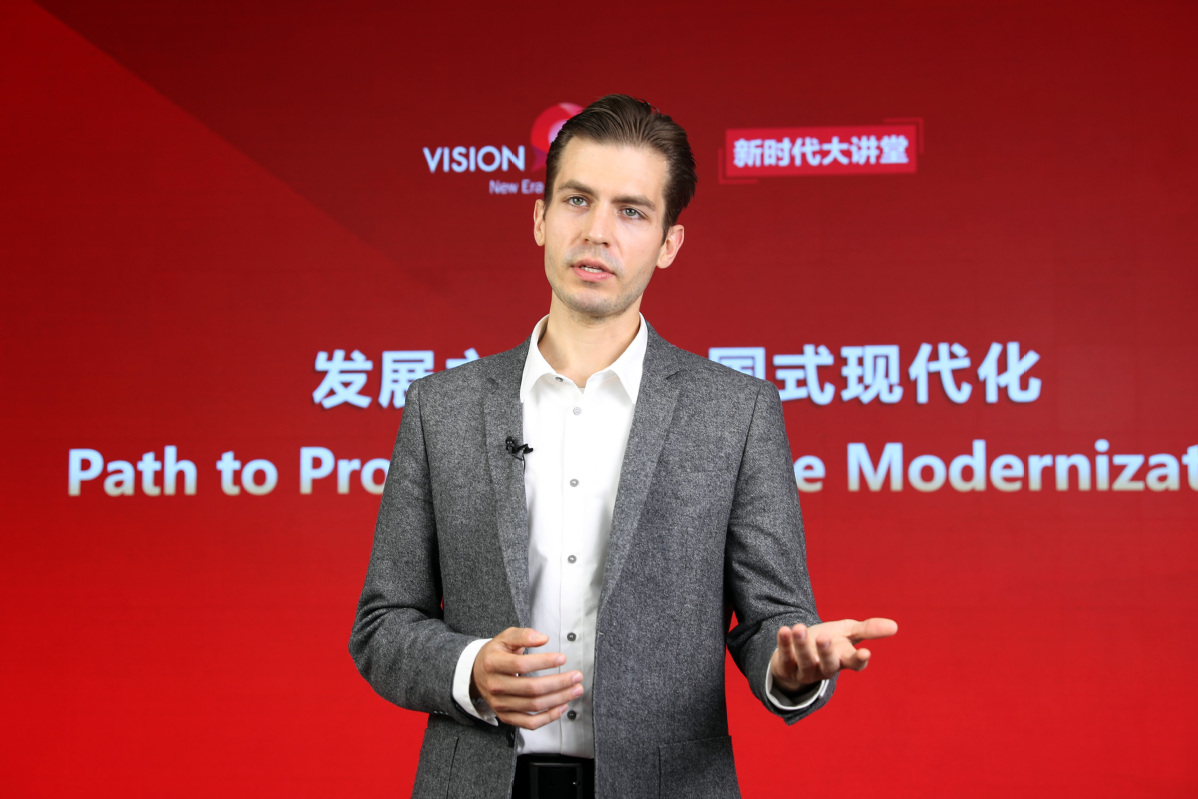
Ian Goodrum, an editor and writer at China Daily, noted that the 20th CPC National Congress offered "a list of priorities the country will be focusing on between now and 2035", such as the per capita GDP of a mid-level developed country and better and more equitably distributed public services.
These goals will "serve as the rubric for government performance" in the coming years, and define the country's progress in a tangible way, he said.
"China can and should remain concentrated on its own affairs and let its own development do the talking," he added.

Hu Yinglian, a professor at the National Academy of Governance, noted that modernization is now not just about installing lamps or telephones in poor areas, or building high-speed railway lines, but also about building a modern governance system.
The Party encourages all stakeholders to work together in addressing pressing problems such as improving healthcare, public safety and community development at a time when the country's rapid development "also faces some risks and challenges", he said.
"A more harmonious society will definitely help develop China into a modern socialist country by 2050, which is the second centenary goal," he added.
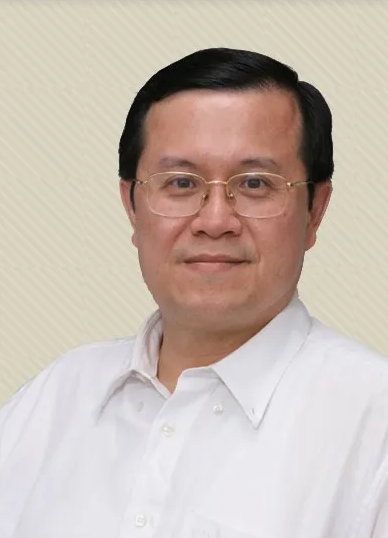
Ong Tee Keat, former minister of transport of Malaysia and chairman of the country's Center for New Inclusive Asia, noted that over the past 10 years, China has evolved into "a staunch defender of multilateral international cooperation based on the UN Charter".
The 10-member Association of Southeast Asian Nations will continue to benefit from the inclusive and symbiotic Belt and Road Initiative through connectivity-based collaboration, because "it has presented to the region and the world a stable, resilient and egalitarian model of international cooperation", he said.
New drivers for economic cooperation are earmarked to be brought to the table to help boost the post-pandemic economic recovery in the region, he added.
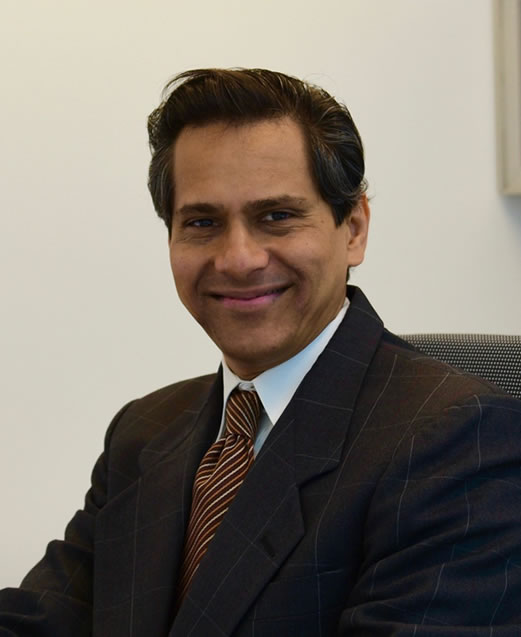
Sourabh Gupta, senior fellow at the Institute for China-America Studies, highlighted the importance of China's move from high-speed growth to high-quality development.
The timeline of this move has been very well stated and is well thought out, he said, adding that he hoped that the goals will be implemented rigorously over the next 30 years.
"The world, the region and China has an interest in seeing China succeed, and I hope that will be the case," he added.

















